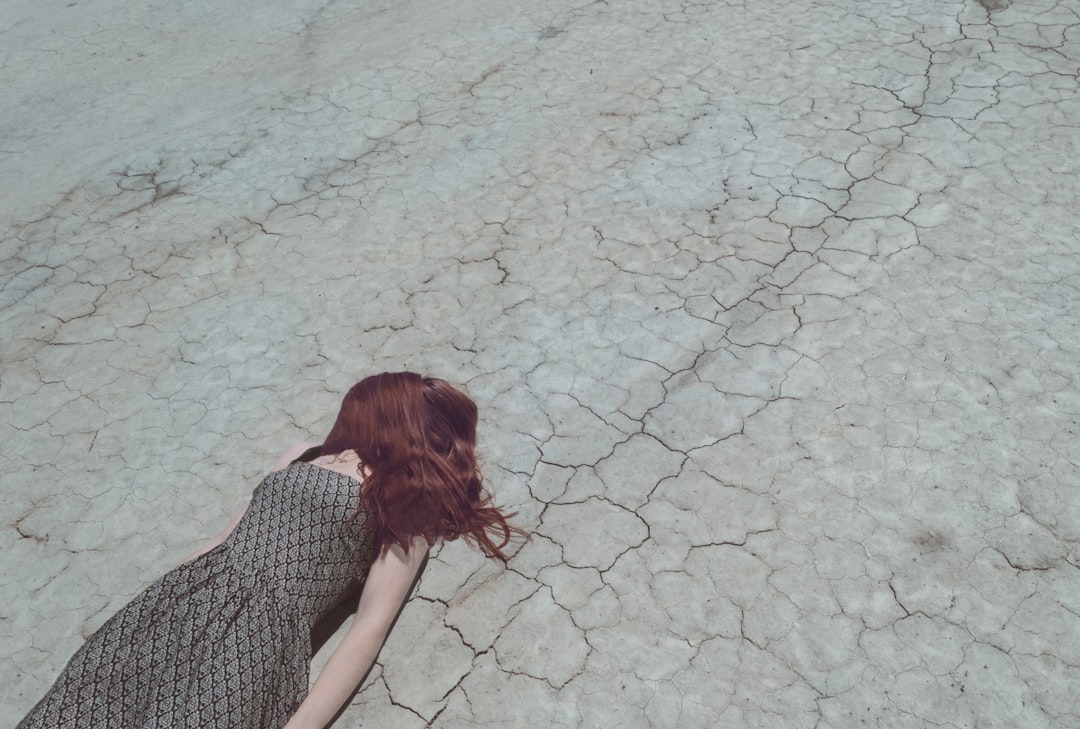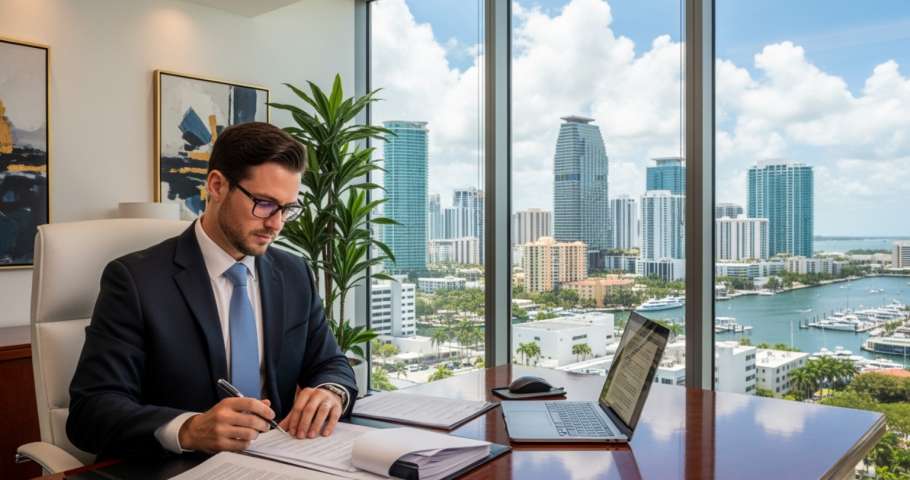Slip and fall questions: 3 Critical Answers
Why Asking the Right Slip and Fall Questions Matters
Slip and fall questions are critical to building a strong case after you’ve been injured on someone else’s property. If you’re preparing for a legal consultation, here are the most important questions to ask your attorney:
Essential Questions to Ask Your Slip and Fall Attorney:
- What caused the hazard? – Its type, source, and how long it was present.
- Who is responsible? – Property owner duties, inspection records, and prior complaints.
- What can I recover? – Medical bills, lost wages, pain and suffering, and future costs.
- How long do I have? – The statute of limitations deadline in your state.
- What evidence do I need? – Photos, incident reports, witness statements, and surveillance footage.
- Will my case settle or go to trial? – The expected timeline and settlement odds.
- How do I pay for treatment now? – Options like health insurance, liens, and letters of protection.
- What are your fees? – Contingency rates and costs if there’s no recovery.
Slip and falls are the second leading cause of injuries and deaths after car accidents. Each year, over one million people visit emergency rooms for fall-related injuries. Knowing what questions to ask can make the difference between a fair settlement and being left with mounting bills.
At DiStefano Law LLC, we’ve spent over 40 years helping South Florida residents steer slip and fall questions and secure millions in settlements and verdicts. Our team understands the complex liability issues and evidence requirements that determine whether your case succeeds.
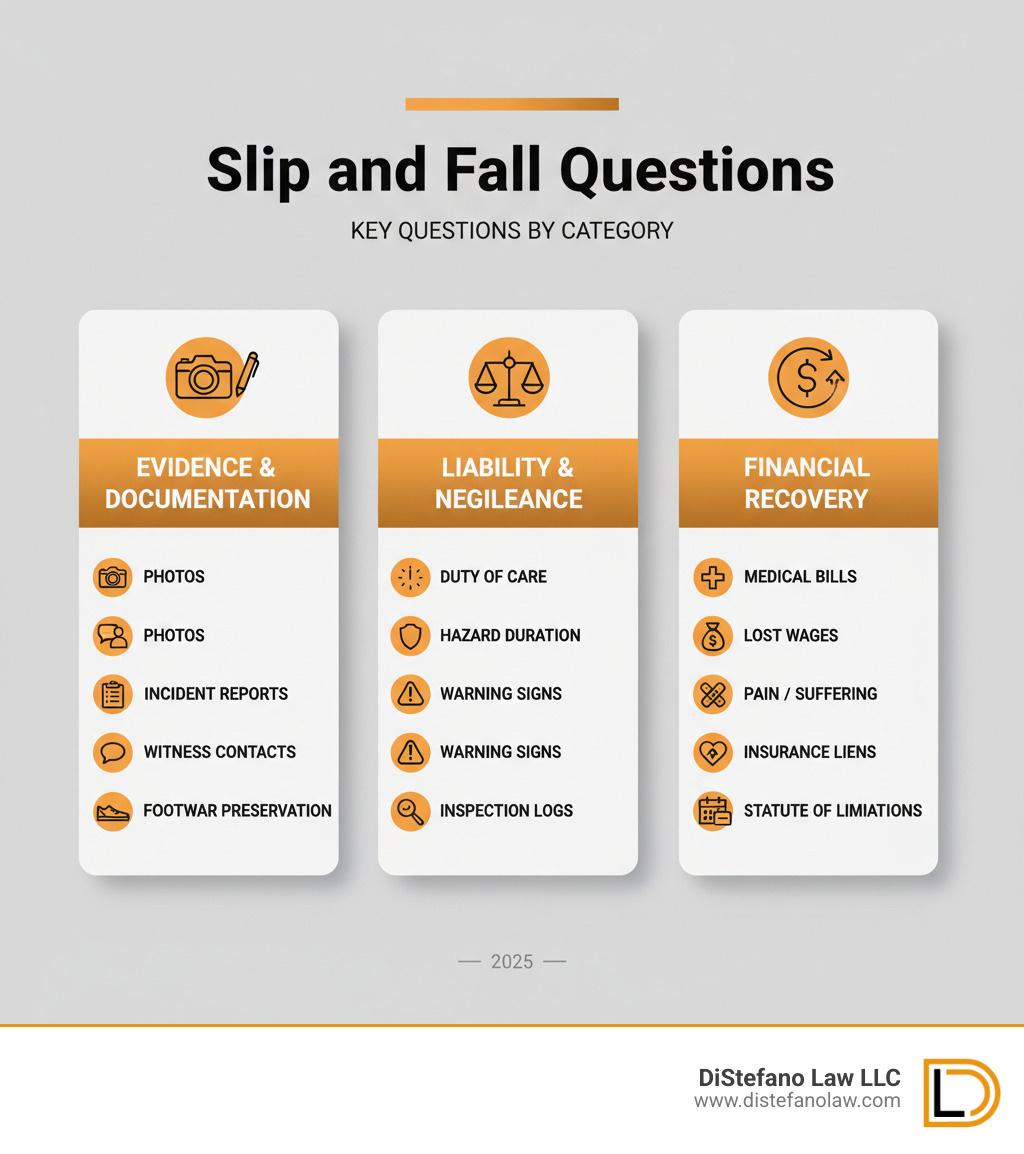
Related content about Slip and fall questions:
Pre-Consult Prep: Gather the Right Evidence
The minutes after a slip and fall are overwhelming, but what you do right away can make or break your case. Evidence like a wet floor, helpful witnesses, and surveillance footage can disappear quickly. While gathering evidence is the last thing on your mind when you’re hurt in a Fort Lauderdale grocery store or a Sunrise parking lot, a few simple actions can help us answer the critical slip and fall questions that lead to fair compensation.
According to the U.S. Bureau of Labor and Statistics, falls are a leading cause of workplace accidents. Insurance companies know most people don’t document accidents properly and use this to their advantage. You don’t need to be a professional investigator—just your phone and a few minutes. For comprehensive guidance, visit our page on Slip and Falls.
Creating an A-to-Z Evidence Kit
Your smartphone is your most powerful tool. Here’s what to capture:
- Take Photos: Get pictures of the hazard from multiple angles, both close-up and wide to show the surrounding area. Photograph the lighting, any warning signs (or lack thereof), and your injuries.
- File an Incident Report: Report the fall immediately and insist on a copy of the incident report. This creates a paper trail proving the business knew about your fall from day one.
- Get Witness Information: If anyone saw you fall or rushed to help, get their names and phone numbers. Independent witnesses can corroborate your story.
- Document the Hazard: What did you slip on? Water, grease, or something else? Note its appearance. A dirty or tracked-through substance suggests it was there for a while, which helps establish negligence.
- Save Your Shoes: Don’t clean the shoes you were wearing. Put them in a bag and keep them safe, as they can disprove defense arguments that your footwear was inappropriate.
- Keep All Medical Records: Save everything from ER visits, follow-up appointments, and prescriptions. These documents prove your injuries and financial losses.
Red-Flag Mistakes to Avoid Before Meeting Your Lawyer
What you don’t do is just as important. Avoid these common mistakes:
- Never Give a Recorded Statement to an Insurer: An adjuster may call and sound friendly, but their job is to pay you as little as possible. They use recorded statements to twist your words. Politely decline and tell them your attorney will be in contact.
- Don’t Delay Medical Treatment: Adrenaline can mask serious injuries. Waiting to see a doctor gives the insurance company an opening to argue your injuries weren’t caused by the fall. Get checked out within 72 hours.
- Don’t Delete Evidence: Keep every photo and video, no matter how blurry or seemingly useless. Surveillance footage is often erased within a week, so contact us quickly to send a preservation letter.
- Stay off Social Media: Insurance companies scour social media for anything to use against you. A photo of you smiling can be twisted to claim you’re not really hurt. Stay quiet online until your case is resolved.
Key Slip and Fall Questions to Ask About Liability & Negligence
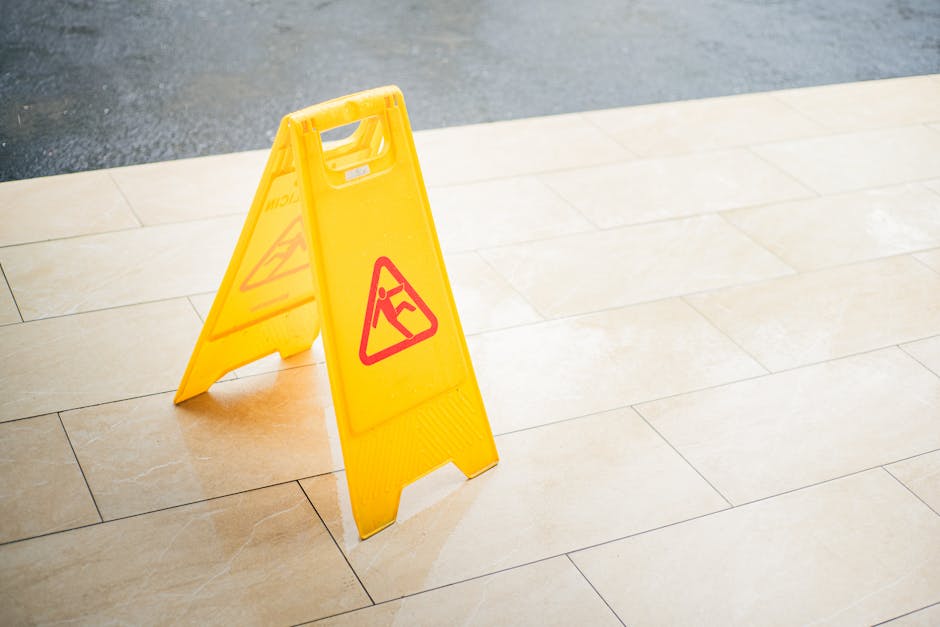
Now that you’ve gathered evidence, let’s focus on the legal heart of your case: liability and negligence. In Florida, property owners have a “duty of care” to keep their premises reasonably safe. When they fail and you get hurt, they can be held accountable.
Proving liability requires asking the right slip and fall questions. Under Florida Statute 768.0755, we must show the property owner created the hazard, knew about it and didn’t fix it, or should have known about it. This last part, “constructive knowledge,” means the hazard existed long enough that a reasonable owner would have found it. This is a high bar, which is why documentation is so important. Research from the National Floor Safety Institute confirms that these accidents can cause severe injuries like broken bones and traumatic brain injuries, making a thorough investigation essential.
For more on property owner responsibilities, see our page on Premises Liability.
Reconstructing the Accident Scene
We will reconstruct the incident to identify where the property owner failed. We’ll investigate:
- The Cause: What exactly made you fall? Was it a puddle, torn carpet, or an unmarked freshly waxed floor? Specificity is key.
- The Hazard’s Details: If you fell on a substance, we need to know what it was (water, oil, food) and where it came from. A clear liquid on a light floor is harder to see, which affects arguments about whether you could have avoided it.
- The Hazard’s Duration: Did the substance look like it had been there for a while? Dirt, footprints, or partial drying are strong evidence of negligence, showing the owner had ample time to clean it up.
- Your Awareness: We’ll ask if you saw the hazard before you fell and why not. Poor lighting or an obstructed view can explain why an otherwise attentive person wouldn’t see a danger.
- Warning Signs and Flooring: Were there any “Caution” signs, and were they properly placed? Sometimes, the type of flooring itself is inappropriate for an area prone to getting wet.
Evaluating the Property Owner’s Duty of Care
Understanding what the property owner knew is essential. These slip and fall questions help us prove they failed to meet their legal duties:
- Post-Fall Actions: Did employees rush to clean up or suddenly produce a warning sign? Their reaction can indicate prior knowledge of the problem.
- Employee Statements: Did a worker say something like, “I told my manager about that leak”? Such comments are powerful evidence.
- Surveillance Footage: Security video is often the most objective evidence. We move quickly to send a legal notice demanding the business preserve any footage of your fall or the hazard before it’s erased.
- Policies and Procedures: We investigate the owner’s standard operations. A lack of regular inspection logs, records of prior complaints, or proper employee training manuals can demonstrate a pattern of systemic negligence.
Florida law requires property owners to be proactive about safety. When they fail, and you get hurt, they are liable. At DiStefano Law LLC, we have over 40 years of experience asking these questions and holding negligent property owners accountable.
Financial & Medical Slip and Fall Questions: Damages, Bills & Insurance
After a slip and fall, the physical pain is often followed by financial stress from medical bills and lost work. At DiStefano Law LLC, we’ve helped hundreds of South Florida families steer this situation for over 40 years. Our goal is to ensure you are fully compensated for everything the accident cost you.
In Florida, you can recover economic damages (medical bills, lost wages) and non-economic damages (pain and suffering, loss of enjoyment of life). Even if you were partially at fault, you can still recover damages under Florida’s comparative negligence law, though your award will be reduced by your percentage of fault.
One common complication is a health insurance lien. If your insurer pays your bills, they have a right to be repaid from your settlement (subrogation). We aggressively negotiate these liens down to maximize the money you take home.
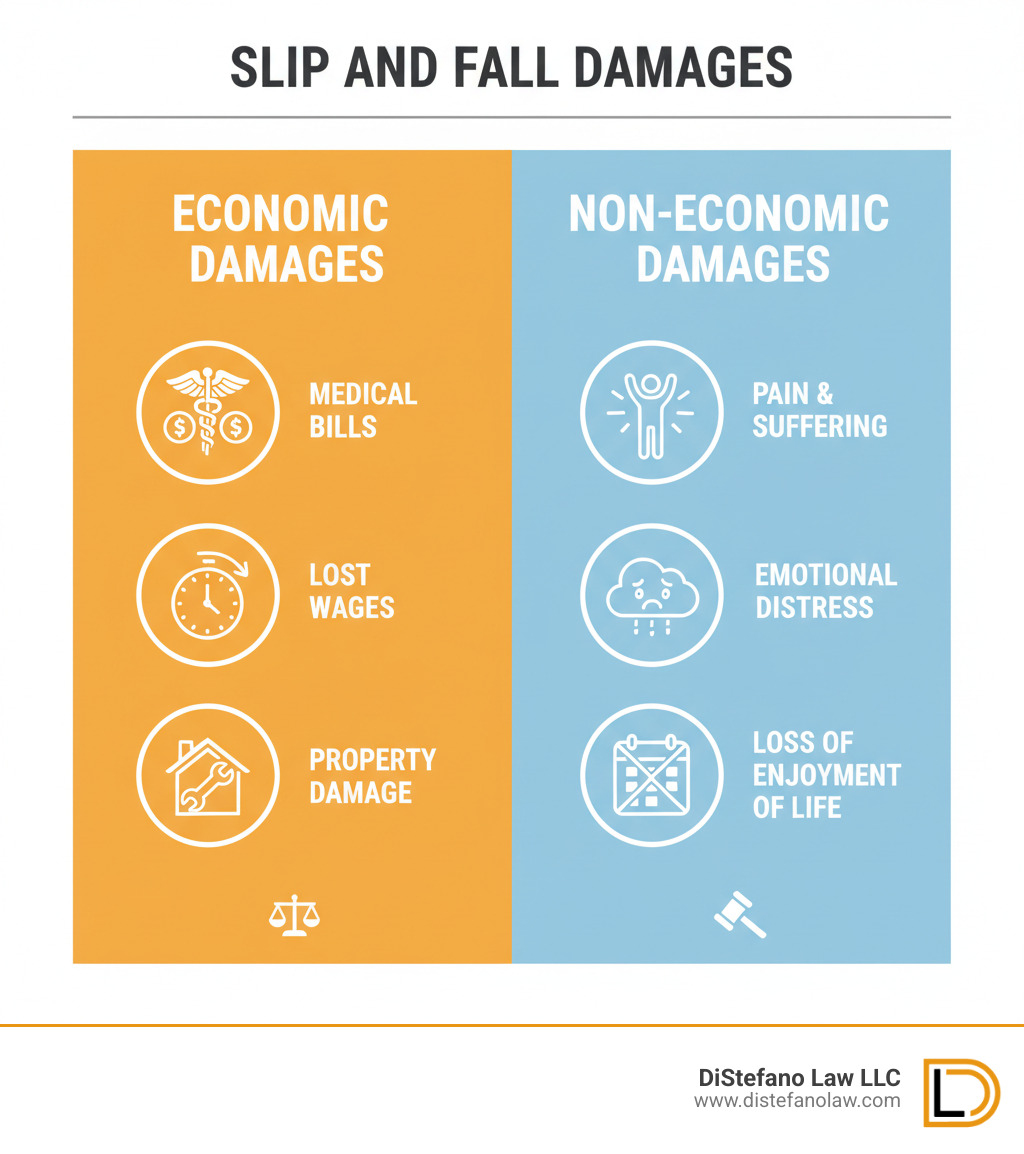
For a detailed breakdown, visit our page on Slip and Fall Compensation.
Documenting Your Injuries and Treatment
Adrenaline can mask serious injuries like concussions or spinal damage, which is why one of the first slip and fall questions we ask is about your symptoms and when they appeared. According to the CDC, falls are a leading cause of traumatic brain injuries (TBIs).
We need to know about every injury and every provider who has treated you—from the ER to physical therapists. We will gather all records to build a complete picture of your medical journey. If you had a pre-existing condition, don’t worry. An injury aggravated by a fall is still compensable. We also factor in the cost of future medical care, such as surgery or ongoing therapy, into your claim.
Paying for Care While Your Case Is Pending
You need treatment now, but your case may take months to resolve. Here’s how you can manage costs in the meantime:
- Health Insurance: Use your health insurance if you have it. Your insurer will pay your bills, and we will handle any subrogation claims they make on your settlement.
- Out-of-Pocket Costs: Keep a meticulous record of all co-pays, deductibles, and even mileage to appointments. These are all part of your economic damages.
- Letter of Protection (LOP): If you are uninsured, we can often work with medical providers on an LOP. This allows you to get treatment now and pay for it from your settlement. We will discuss the pros and cons with you.
- Lost Wages: Document every hour of missed work. We use pay stubs and employer letters to prove your lost income. If your ability to earn a living is permanently affected, that loss of earning capacity can dramatically increase your compensation.
You shouldn’t have to choose between getting medical care and paying your bills. We’ll help you find a way to get the treatment you need while we fight for the compensation you deserve.
Legal Timeline, Settlement & Trial Questions
If you’ve been injured in a slip and fall, you’re likely wondering what happens next and if you’ll have to go to court. These are common slip and fall questions, and we’re here to explain the process for you.
It may be reassuring to know that over 90% of slip and fall cases settle out of court. This means most of our clients receive fair compensation without ever facing a judge or jury. We achieve this by preparing every case as if it’s going to trial, which gives us leverage to negotiate a favorable settlement on your behalf. However, we are always ready to go to court if the insurance company refuses to be reasonable.
One of the most critical factors is timing. In Florida, you generally have four years from the date of your accident to file a lawsuit under Florida Statutes § 95.11. While that sounds like a long time, it’s crucial to act quickly. Evidence like surveillance footage and witness memories can disappear fast, weakening your case.
For more details on the legal process, visit our Slip and Fall Lawsuit page.
Statute-of-Limitations Slip and Fall Questions
The statute of limitations is a strict legal deadline. If you miss it, you lose your right to seek compensation forever. While Florida’s deadline is typically four years, some exceptions can change this timeline.
Contacting an attorney early is vital. It allows us to preserve critical evidence, interview witnesses, and show the insurance company you are serious about your claim. Rushing at the last minute rarely leads to the best outcome.
Settlement vs. Trial Slip and Fall Questions
- How long will my case take? The timeline depends on your injuries and the complexity of the case. A straightforward case might settle in 6-9 months, while a case with severe injuries could take a year or more. We never rush a settlement before we know the full extent of your future medical needs.
- What determines if a case settles? Clear liability, significant damages, and an insurer’s willingness to negotiate in good faith all point toward settlement. If an insurer makes a lowball offer, we won’t hesitate to file a lawsuit and proceed to trial.
- How do attorney fees work? We work on a contingency fee basis. This means you pay nothing upfront. We only get paid if we secure a settlement or verdict for you, and our fee is a percentage of that recovery. If there’s no recovery, you owe us nothing for fees or costs.
Quick Answers to Top Slip and Fall Questions
If you’re reading this after a fall in South Florida, you need answers fast. Here are straightforward responses to the most common slip and fall questions we hear. For guidance specific to your situation, please call us for a free consultation.
Are slip and fall cases hard to win?
Yes, they can be challenging. The burden is on you to prove the property owner was negligent—that they knew or should have known about a dangerous condition and failed to fix it. Insurance companies fight these claims aggressively, often arguing you were careless. However, with an experienced attorney, thorough investigation, and strong evidence like photos and witness statements, these cases are absolutely winnable. We’ve spent over 40 years building powerful cases for South Florida residents.
How long after a slip and fall can you sue?
In Florida, you generally have four years from the accident date to file a lawsuit. This is a strict deadline known as the statute of limitations. While four years seems like a long time, you should contact an attorney immediately. Evidence like surveillance footage is often erased within days, and witness memories fade. Acting quickly is the best way to protect your right to compensation and build a strong case.
Who pays my medical bills after a slip and fall?
This is one of the most pressing slip and fall questions. Initially, you should use your health insurance to cover treatment. Your insurer may then seek reimbursement from your settlement (a process called subrogation), which we will negotiate to maximize your take-home amount. If you’re uninsured, we can often arrange for you to receive treatment under a Letter of Protection (LOP), where providers agree to wait for payment from your settlement. The ultimate goal is to make the at-fault party’s insurance pay for all past, present, and future medical expenses related to your fall.
Conclusion & Next Steps
A slip and fall accident can turn your world upside down, leaving you with pain, medical bills, and uncertainty. At DiStefano Law LLC, we understand how overwhelming this feels. For over 40 years, we’ve provided clear, honest guidance and genuine compassion to people just like you throughout South Florida.
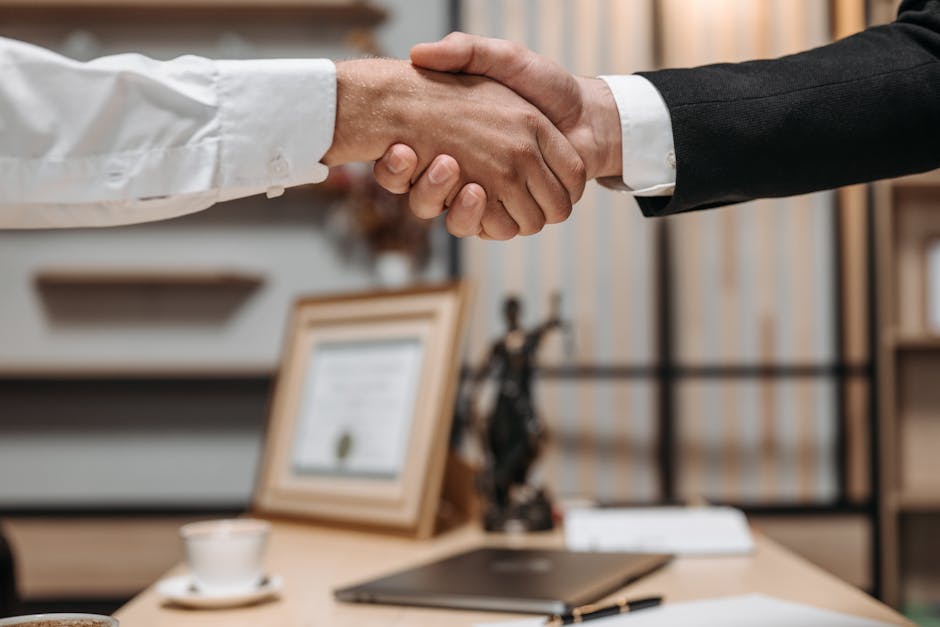
What makes us different is our commitment to personalized representation. You’re not a case number; you’re a person who deserves justice. Our track record of recovering millions for clients speaks for itself, but we’re most proud of making our clients feel heard, supported, and confident.
Property owners and their insurance companies have teams of lawyers working to pay you as little as possible. You deserve your own team—one that knows Florida premises liability law inside and out and will fight for fair compensation for your medical bills, lost wages, and pain and suffering.
The best time to act is now. Evidence disappears, and legal deadlines are strict. Your initial consultation with us is completely free, with no obligation. It’s an honest conversation about your situation and your options.
You’ve been through enough. Let us handle the legal complexities while you focus on healing. If you have slip and fall questions, we have the answers and experience to guide you. Ready to take the next step? We’re ready to listen. For more information, please visit our Contact Us page, and let’s start building your path to recovery together.


